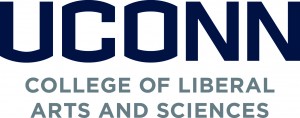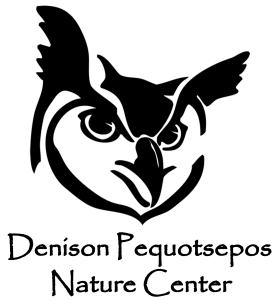Farm to Table through Time: Environmental History and Local Food Production in New England
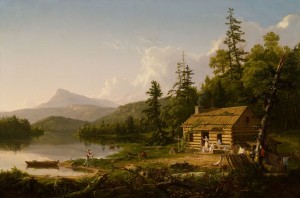 Friday, October 9th, 2015 – 8:30am until 4:00pm.
Friday, October 9th, 2015 – 8:30am until 4:00pm.
UConn Avery Point Auditorium, 1084 Shennecossett Rd., Groton, CT 06340
Free and open to the public. REGISTRATION IS NOW CLOSED. Call 860-405-9025 if you have any questions.
The Auditorium is located on the second floor of the Academic Building (disabled accessible). Enter through the Academic Building or through the Student Center. There is a limited-capacity elevator on the first floor of the Academic Building. Please call us with your questions, or concerns, on the limited-mobility access points to the Auditorium at 860-405-9025.
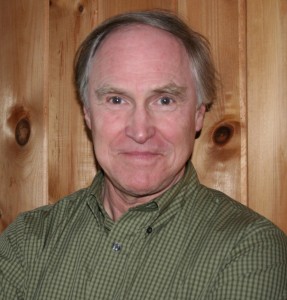 KEYNOTE SPEAKER: Richard Judd (University of Maine) has researched and written about New England’s environmental history for over thirty years. He’s the author of numerous articles and books, including Common Lands, Common People: The Origins of Conservation in Northern New England (Harvard University Press, 1997), The Untilled Garden: Natural History and the Origins of American Conservation, 1730-1850 (New York: Cambridge University Press, 2009), and most recently, Second Nature: An Environmental History of New England (University of Massachusetts Press, 2014).
KEYNOTE SPEAKER: Richard Judd (University of Maine) has researched and written about New England’s environmental history for over thirty years. He’s the author of numerous articles and books, including Common Lands, Common People: The Origins of Conservation in Northern New England (Harvard University Press, 1997), The Untilled Garden: Natural History and the Origins of American Conservation, 1730-1850 (New York: Cambridge University Press, 2009), and most recently, Second Nature: An Environmental History of New England (University of Massachusetts Press, 2014).
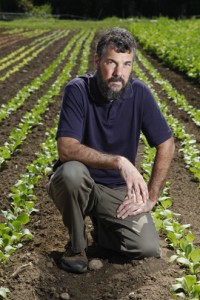 PLENARY SPEAKER: Brian Donahue is the Jack Meyerhoff Fund Associate Professor of American Environmental Studies at Brandeis University. Donahue has written extensively on environmental and agricultural topics since the 1990s. He wrote The Great Meadow: Farmers and the Land in Colonial Concord (Yale University Press, 2004), “Historian with a Chainsaw: Teaching Environmental History in the Field,” OAH Magazine of History 25 (2011): 33-35, (and with David R. Forester), Wildlands and Woodlands: A Vision for the New England Landscape (Harvard University Press, 2010). Most recently, he’s focused on the future of New England food production through Food Solutions New England (http://www.foodsolutionsne.org/), co-authoring A New England Food Vision (University of New Hampshire, 2014) calling for the capacity to produce at least 50% of clean, fair, just, and accessible food for all New Englanders by 2060.
PLENARY SPEAKER: Brian Donahue is the Jack Meyerhoff Fund Associate Professor of American Environmental Studies at Brandeis University. Donahue has written extensively on environmental and agricultural topics since the 1990s. He wrote The Great Meadow: Farmers and the Land in Colonial Concord (Yale University Press, 2004), “Historian with a Chainsaw: Teaching Environmental History in the Field,” OAH Magazine of History 25 (2011): 33-35, (and with David R. Forester), Wildlands and Woodlands: A Vision for the New England Landscape (Harvard University Press, 2010). Most recently, he’s focused on the future of New England food production through Food Solutions New England (http://www.foodsolutionsne.org/), co-authoring A New England Food Vision (University of New Hampshire, 2014) calling for the capacity to produce at least 50% of clean, fair, just, and accessible food for all New Englanders by 2060.
Speaker: Manuel Lizarralde, Connecticut College
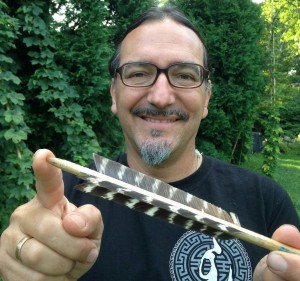 Manuel Lizarralde is a professor in ethnobotany at Connecticut College in the department of Anthropology and Department of Botany since 1998. As a kid and teenager, he went many times with his father to visit the Barí. Since 1988, he has done 34 months of fieldwork focusing on the ethnobotany and life histories of the Barí. He is also a bowyer and bow hunter, as well as a spear fisherman and mushroom hunter. His research also covers the ethnoecology of Southern New England, technological efficiency of bows and arrows and environmental anthropology.
Manuel Lizarralde is a professor in ethnobotany at Connecticut College in the department of Anthropology and Department of Botany since 1998. As a kid and teenager, he went many times with his father to visit the Barí. Since 1988, he has done 34 months of fieldwork focusing on the ethnobotany and life histories of the Barí. He is also a bowyer and bow hunter, as well as a spear fisherman and mushroom hunter. His research also covers the ethnoecology of Southern New England, technological efficiency of bows and arrows and environmental anthropology.
Speaker: Walt Woodward, Connecticut State Historian
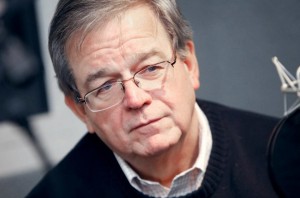 Walter W. Woodward is the Connecticut State Historian and an associate professor of Early American History at the University of Connecticut. He teaches American Environmental History, Public History, and an honors American Studies Course focused on the Connecticut River, as well as courses in Connecticut history. He is the author of the award-winning book Prospero’s America: John Winthrop, Jr., Alchemy and the Creation of New England Culture, numerous articles on New England history, and is a regular columnist for Connecticut Explored magazine. He recently co-authored Teaching History with Museums: Strategies for K-12 Social Studies along with Profs. Alan Marcus and Jeremy Stoddard.
Walter W. Woodward is the Connecticut State Historian and an associate professor of Early American History at the University of Connecticut. He teaches American Environmental History, Public History, and an honors American Studies Course focused on the Connecticut River, as well as courses in Connecticut history. He is the author of the award-winning book Prospero’s America: John Winthrop, Jr., Alchemy and the Creation of New England Culture, numerous articles on New England history, and is a regular columnist for Connecticut Explored magazine. He recently co-authored Teaching History with Museums: Strategies for K-12 Social Studies along with Profs. Alan Marcus and Jeremy Stoddard.
Speaker: Sally McGee, Sixpenny Oysters
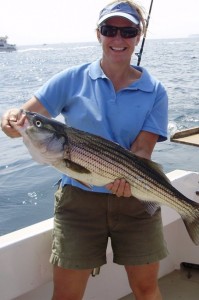 Sally McGee is the owner of Sixpenny Oysters, an oyster farm based in Noank, Connecticut. Sally is also a member of the Noank Aquaculture Cooperative, which is a focal point for shellfish farming in eastern Long Island Sound. Sixpennies are sold through the Coop to restaurants and families in southeastern Connecticut. Sally graduated from Smith College with a Bachelor’s Degree in economics and a Masters in Marine Affairs from the University of Rhode Island. She also holds a 100-ton near-coastal US Coast Guard license that she has used in the North Atlantic, Caribbean, and North and South Pacific oceans. Previously, Sally was a voting member of the New England Fishery Management Council, and worked in the U.S. House of Representatives. Sally is currently the Northeast Marine Program Director for the Nature Conservancy, leading projects that range from Maine to New York, relating to fisheries conservation, coastal planning and restoration.
Sally McGee is the owner of Sixpenny Oysters, an oyster farm based in Noank, Connecticut. Sally is also a member of the Noank Aquaculture Cooperative, which is a focal point for shellfish farming in eastern Long Island Sound. Sixpennies are sold through the Coop to restaurants and families in southeastern Connecticut. Sally graduated from Smith College with a Bachelor’s Degree in economics and a Masters in Marine Affairs from the University of Rhode Island. She also holds a 100-ton near-coastal US Coast Guard license that she has used in the North Atlantic, Caribbean, and North and South Pacific oceans. Previously, Sally was a voting member of the New England Fishery Management Council, and worked in the U.S. House of Representatives. Sally is currently the Northeast Marine Program Director for the Nature Conservancy, leading projects that range from Maine to New York, relating to fisheries conservation, coastal planning and restoration.
Speaker: Jamie Kleinman, University of Connecticut
Jamie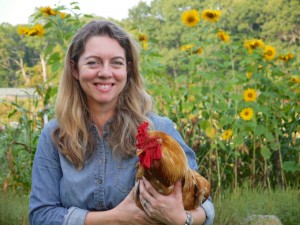 Kleinman lives with her husband and children on a small family homestead in the Quiet Corner of Connecticut. They have been raising their own pastured beef, pork, sheep, and poultry for the past seven years. In addition to raising animals for food, she and her family have a small orchard and garden. Jamie often draws from her work as a psychologist to help inform her farming practices. She has opened up her farm to her local and university communities for events and tastings.
Kleinman lives with her husband and children on a small family homestead in the Quiet Corner of Connecticut. They have been raising their own pastured beef, pork, sheep, and poultry for the past seven years. In addition to raising animals for food, she and her family have a small orchard and garden. Jamie often draws from her work as a psychologist to help inform her farming practices. She has opened up her farm to her local and university communities for events and tastings.
This Symposium is sponsored by American Studies Program, UConn and the Denison Pequotsepos Nature Center.
